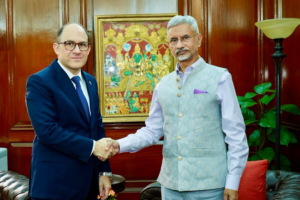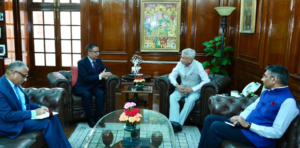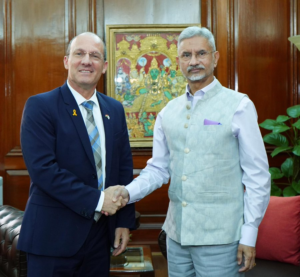Governors’ active role disturbing polity of states: Uddhav faction tells SC
New Delhi, Feb 22 (PTI) The Uddhav Thackeray faction told the Supreme Court on Wednesday that governors are actively playing a role which is disturbing the polity of the states, while slamming the then Maharashtra Governor Bhagat Singh Koshyari for administering the oath to Eknath Shinde as the chief minister on June 30, 2022.
Senior lawyer Kapil Sibal told a five-judge constitution bench headed by Chief Justice DY Chandrachud that Koshyari had sworn in Shinde without even asking him which party he and the other legislators supporting him belonged to.
“The governor should not have sworn in Eknath Shinde as Maharashtra Chief Minister without asking which party he and other legislators supporting him belong to. In what capacity did Eknath Shinde go to the governor? How was he granted audience? Governor knew that there were disqualification proceedings pending against him but he swore him in as CM.
“This has happened in Arunachal Pradesh also. No disrespect to the post but unfortunately, we have seen that governors are actively playing a role which is disturbing the polity of the states”, he said.
Sibal told the bench, also comprising Justices MR Shah, Krishna Murari, Hima Kohli and PS Narasimha, that right from June 20, 2022 till June 30, 2022, each of their (Shinde faction’s) acts amounted to voluntarily giving up the membership of the Shiv Sena party.
“He (Shinde) has no defence under the Tenth Schedule because there is no amalgamation with another party,” Sibal said, adding the governor, by swearing him in as the chief minister revived the concept of split in a political party and gave legitimacy to it.
On Sibal’s contention about the supremacy of the party leadership over its lawmakers, the bench said an MLA is a political leader in his district or constituency and represents the will of his constituents.
“A legislator doubles up as a political leader in his district or constituency. He is the political leader for his people in the constituency whom he represents in the House. So, the question arises is that is there an overlap of the position of a legislator and a political leader and at what stage do we determine that,” Justice Narasimha said.
Sibal replied, “Yes, there is interplay. In a constituency, I have several classes of people like OBC, SC, ST and many others but when you come to the assembly you are not looking at your constituency but the State. Your interest in the constituency gets subjugated in the larger interest of the state and the political party he represents.”
He added that this interplay cannot be used for not listening to the whip of the party.
The bench told Sibal legislators can say they are the original political party as they represent the will of the people.
Sibal replied they cannot do so as they are the majority only in the House. They cannot call a meeting of the political party and have to abide by the constitution of the party they represent, he said.
“You can raise your difference of opinion, if any, only in the meeting of the party. If you have substantial numbers with you, then you seek to change the leadership of the party but only in the meeting. In this case, there was no notice and no meeting of the original political party.
“Suddenly, someone sitting in Gauhati claimed that he is the leader of the political party and changed the whip of the party in the House. You claim that it is a split in the party and align with BJP and get yourself anointed as chief minister of the state. The meeting of legislators was held in Assam and members of the political party have nothing to do with a meeting of its legislators in Assam,” he said.
Sibal submitted there is a close connection between the political party and its elected legislators.
“The political party is the genus, while its elected legislators are the species. The latter cannot snap itself from the former. This snapping of the connection between the political party and its elected legislators is defection, which is recognised to be a grave political and social evil,” he said.
On Tuesday, in an unusual move, the Uddhav bloc of the Shiv Sena had urged the top court to decide the disqualification proceedings pending against Shinde and Shiv Sena MLAs belonging to his camp, saying that would be the only way to “uphold the democratic spirit of the Constitution”.
The faction had also deprecated constitutional functionaries like the governor of states taking an active part in the country’s politics.
A political crisis in Maharashtra had erupted after an open revolt in the Sena and, on June 29, 2022, the apex court refused to stay the Maharashtra governor’s direction to the 31-month-old MVA government to take a floor test in the assembly to prove its majority. Thackeray resigned as the chief minister before the floor test.
On August 23, 2022, a three-judge bench of the top court headed by then chief justice N V Ramana had formulated several questions of law and referred to the five-judge bench petitions filed by the two Sena factions which raised several constitutional questions related to defection, merger and disqualification.
It had said the batch of petitions raised important constitutional issues related to the Tenth Schedule of the Constitution pertaining to disqualification, powers of the speaker and governor, and judicial review.
The Tenth Schedule of the Constitution provides for prevention of defection of the elected and nominated members from a political party and contains stringent provisions against it.






